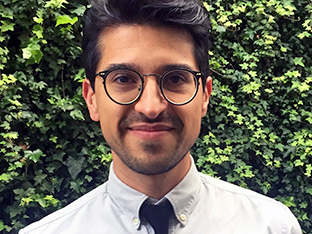Philosopher-Led Project Studies Self-Control & Poverty in the Global South
A project is underway to study self-control in contexts of poverty in the Global South, directed by professor of philosophy Juan Pablo Bermúdez (Universidad Externado de Colombia & Imperial College London).

The project is supported by a $300,000 grant from the John Templeton Foundation. Professor Bermúdez provides the following description of it:
Research suggests that poverty reduces our ability to pursue long-term goals, but it is yet unclear how this effect occurs. Does poverty make temptations greater, and self-control failures more frequent? Or do agents respond to poverty’s harsher conditions by abandoning their longterm aspirations, choosing shorter-term goals instead? To our knowledge there is no direct test of these two possible mechanistic explanations. Using a method that allows us to take ‘psychological snapshots’ of everyday experiences, we will map out the influence of context on people’s decision-making process, in order to better understand the mechanisms of self-control in contexts of poverty.
Our study will include the most diverse population yet in self-control studies: people from high and low SES backgrounds in urban Colombia. It will provide new insights into how the virtue of self-control manifests in poverty contexts. We will also identify which strategies, skills, and support conditions are most effective for fostering flourishing in the midst of scarcity and hardship.
The project’s co-leader is Chandra Sripada (Michigan). The team also includes William Jiménez-Leal (Andes), and, as advisors, Santiago Amaya (Andes), Michael Inzlicht (Toronto), and Jennifer Morton (Pennsylvania).
You can learn more about the project here.



Perhaps this study should also think about asking to what extent it is possible to “flourish” in conditions of scarcity and hardship, rather than assuming there are “strategies, skills, and support conditions” that make flourishing in those circumstances possible. There may be skills and “support conditions” that make surviving and escaping from extreme poverty easier, but that’s a different point.
The quoted description also suggests that “self-control” is a “virtue,” but is it always and in all contexts? As for prioritizing short-term goals over long-term ones, won’t that sometimes be dictated by necessity? If a household or person doesn’t have adequate food, clean water, sanitation, or adequate housing and health care, then the short-term goals of daily survival might well crowd out everything else. The pursuit of long-term goals might require not only motivation but also some material preconditions.
The psychologist Elliot Berkman makes a similar point here:
https://theconversation.com/its-not-a-lack-of-self-control-that-keeps-people-poor-47734
Over the last decade, there’s been plenty of research suggesting a link between poverty and lack of self-control (as classically understood, in terms sticking to one’s long-term plans in the face of incompatible non-essential short-term gains). This project is certainly within that frame, and given its scope it offers a promising basis for extending that research, both empirically and pedagogically.
Thank you for the link.